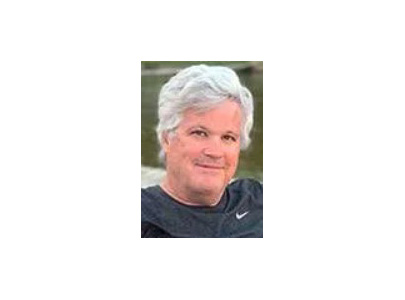For Max Heath, it was about getting the newspapers delivered on time
Sep 1, 2021


Max Heath used to say he dealt in gravel and I dealt in diamonds.
That quip drew a laugh from the newspaper audiences that he so diligently trained over the years. What he meant was that he dealt in the details while I floated up around the clouds of postal policy somewhere.
People in our business knew it was the gravel that mattered. In the postal world over which Max strode so masterfully for more than 30 years, it was about understanding the sacks and the tags and the labeling lists and arcane 19th century regulations always lying in the weeds to trap the unwary. It was about getting the newspapers delivered on time.
I am sure I sat in a hundred meetings with Max over the three decades of our work together. I cannot count the times Max attended a convention with his wife, Ruth Ann, who knew when someone made a beeline for Max that there was going to be a long complaint about the mail ahead. She so patiently gave him over to the crowd, as doctors’ wives must do when the cocktail reception turns into office hours for everyone’s aches and pains.
We were not always a cohesive team. Max and I were very different people, yoked together in a common cause: to make sure community newspapers got a fair shake from the sprawling empire of the US Postal Service. It took us a while to figure out that our differences were strengths and to arrange ourselves in whichever good cop/bad cop posture was most likely to get what we wanted for newspapers.
He was the guy on the ground. I was the policy person. He was the mechanic, and I was the architect. Except when I didn’t architect well enough, Max would take over, and I just stood by and waited until he finished designing the system he thought ought to work. Then I went out to see if I could make it happen. He was my editor. I was his visionary. He was the instructor. I was his translator, bringing the pages of bewildering postal terms into English for his Postal Tips column.
He was the battering ram; I was sometimes the door, until we would both agree he was right about whatever postal policy he was mad about. Then I would add my arm to the battering ram and off we would go together to see which obnoxious, short-sighted, pig-headed, darn-old Inside the Beltway decision needed to get battered.
He would haul me back to earth regularly when I was ready to fly off to Congress to get some correction in policies, urging me to work the system — and then the next thing I knew, he’d be writing the Postmaster General himself about some grievance. When a newspaper needed his help, Max always went straight to the USPS operations person in charge. If he didn’t get an answer, his complaint went to the next highest person. When the typewriter was replaced by the email keyboard, the strings of communication from Max could stretch for pages with each new contact receiving the whole string until finally, not getting the answer he wanted, he would write the PMG. I used to reflect that if he had had an email address for God, the chain would have gone even higher. Knowing Max, he had that address — it just didn’t show up on a computer.
When Postmaster General Jack Potter announced in 2009 that he planned to end Saturday mail delivery that year, I was despondent. Hoards of consultants and experts had the facts and figures for why it had to happen. I was convinced. The larger postal world of marketing mailers, big businesses and federal accountants were determined to save whatever pittance a five-day mail system could save. I was resigned.
Not Max. He greeted the announcement with his usual skepticism. He kicked that tire and found that it leaked. Don’t give up so easily, he commanded.
Newspapers need that Saturday mail, and so do a lot of other small businesses. Get back into the fight, he ordered.
OK, whatever, I thought. We’ll lose this one for sure. But off I went to Capitol Hill fired up with Max’s fervor more than my own.
I discovered he was right. A lot of folks did need that Saturday mail.
It is 2021. That PMG has been succeeded by three others, and we still have Saturday mail delivery. Score--Max, 1; Beltway, zero.
The gravel that Max dealt in was more than counseling hundreds of newspapers. It was … and is … the paving for a web of federal laws and regulations that are obscure to many, but publishers and editors know them by their effects. The within-county postage rate that makes local mail affordable for small publishers is not there by accident. Its place in the federal law was not earned by us — it was created in 1845. But it was protected by Max’s team. People in Washington who cast an eye toward eliminating it soon discover it isn’t worth the fight.
In the late 1990s, NNA was engaged in yet another of the perennial Congressional battles over USPS. We had opposed legislation intended to “reform” the Postal Service largely because our industry was fending off the rise of direct mail. Somewhere in the multi-year campaign, Max and I came independently to the realization that new laws were needed and that it was time for NNA to shape them rather than oppose them.
He flew to Washington to join NNA President Lockwood Phillips, Morehead City, North Carolina; and late NNA leaders Jeff David, Livingston Parish, Lousiana; and Dan Phillips, Oxford, Mississippi. I had set up a meeting with Congressman John McHugh, R-New York, who was writing the new legislation and who was running into a wall of opposition. We went to hear his rationale for the bill and to decide whether NNA would get behind it or stand in front to block it.
McHugh was a savvy legislator. He wanted NNA’s support. He thought with community publishers behind him, he could get his bill into law.
“What do you need?” he asked the NNA group.
Max and I looked at each other.
“We need to fix the wandering routes,” one of us said, referring to the postage rate charged for postal carrier routes that wove like serpentine in and out of local counties, which gave newspapers higher rates than Max thought they ought to pay.
“We need to get limited circulation back,” the other said, referring to a discount for limited newspaper mail outside the county of entry that had been eliminated by the Reagan administration.
We needed several other things. I can’t remember which of us offered them up, but I well remember the two of us tossing the ideas back and forth until we ran out of steam. They were all from Max’s playbook of bad things that USPS ought not have done to newspapers and that we ought to fix one day. It was arcane stuff, and McHugh’s staff looked a little bewildered as they took notes. But we left happy. NNA threw its weight behind the bill, and even though it took nearly a decade to pass, the requests we made became part of the law.
Like most who grieve the loss of our old friend, we will be thinking in days ahead of many stories like this. Some day, someone must write the story of Max Heath, newspaper warrior. There was none fiercer or more caring. As he passed, many of his friends paid him the highest compliment of our order. He had ink in his veins.
Tonda Rush is the NNA's legal counsel and director of public policy. tonda@nna.org








